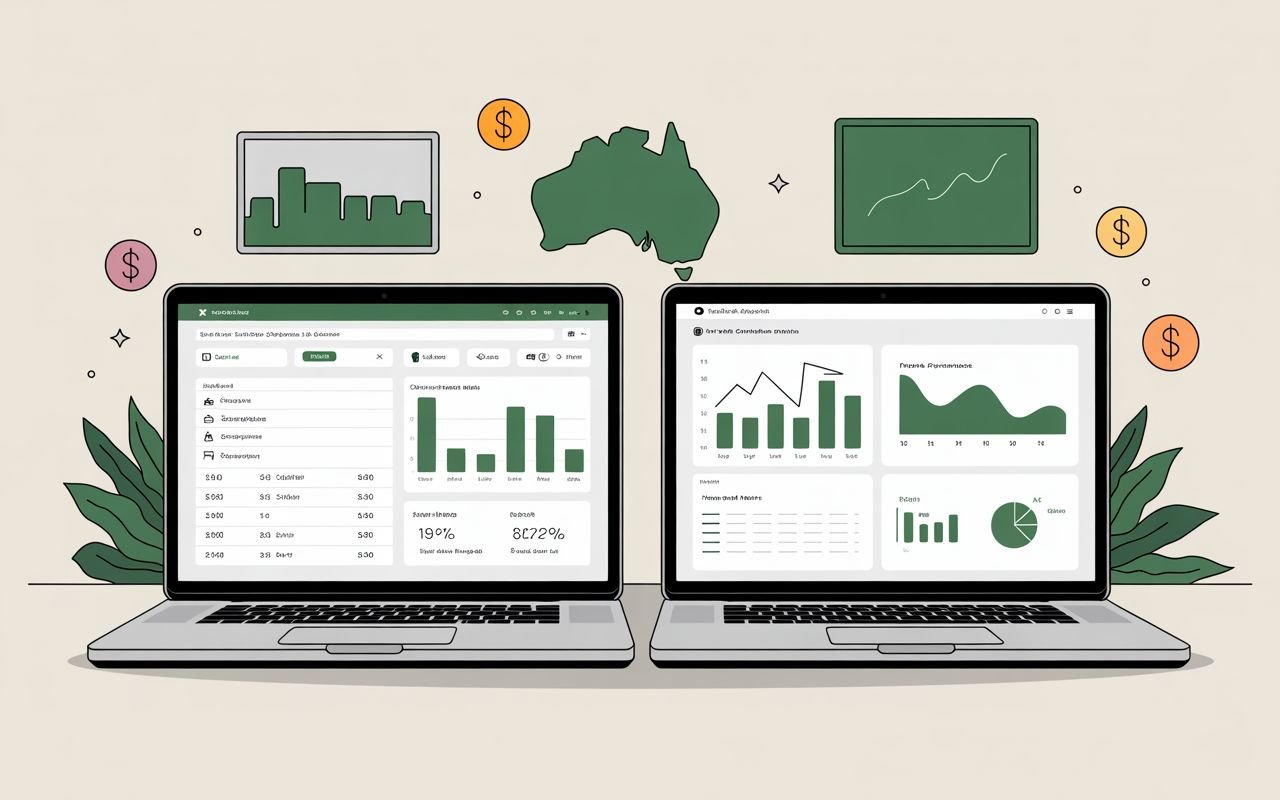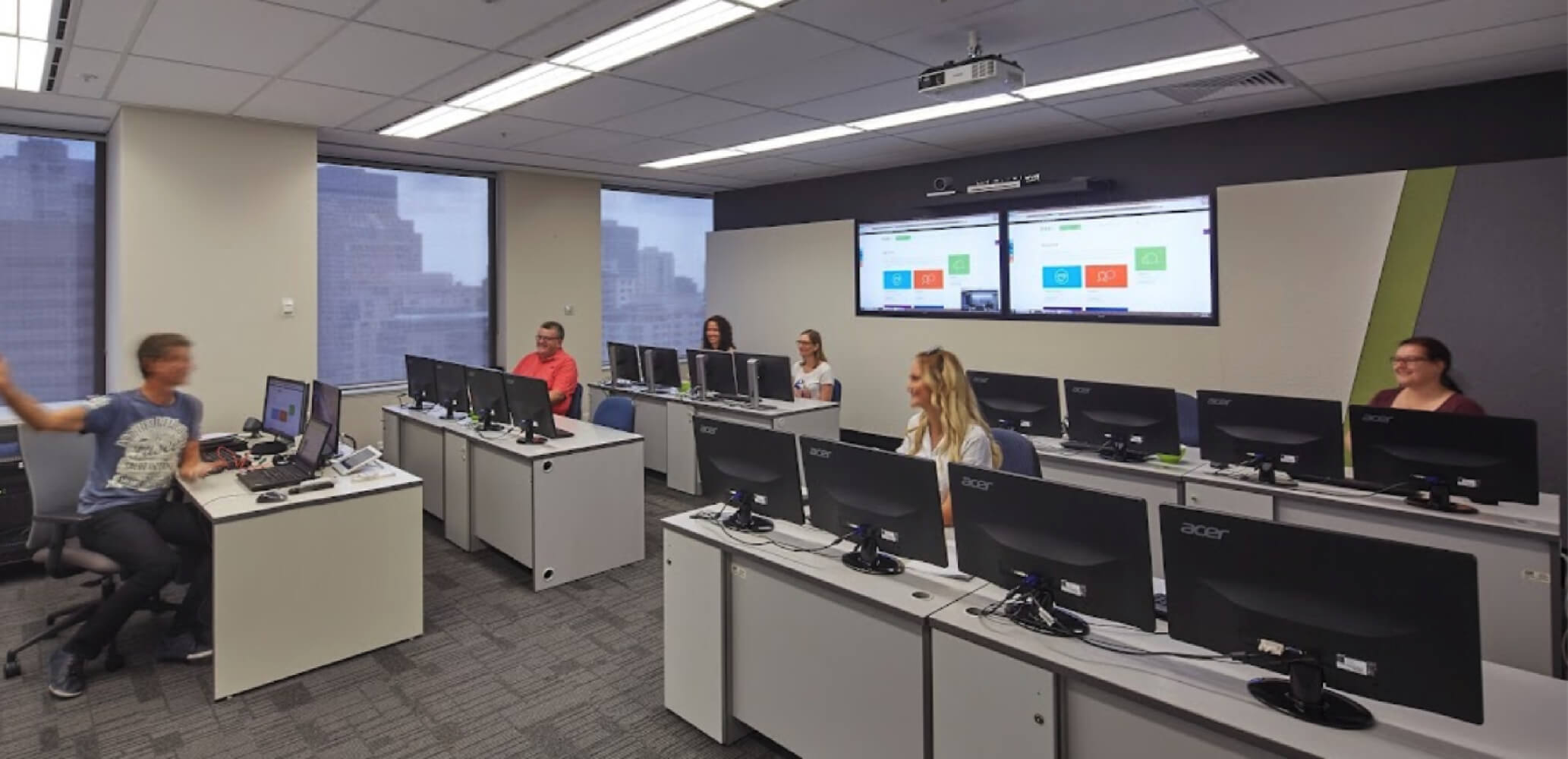Excel: Top 10 Skill for 2025
Excel powers careers, are you missing out?
In 2025, Excel remains one of Australia’s most sought-after workplace skills. From banking and healthcare to logistics and government, teams are using Excel (often alongside Power BI) to automate reporting, clean complex data, and deliver faster insights. This article explains why Excel still matters, the top skills to master, practical Australian case studies, and how targeted Nexacu training turns capability into career momentum.
Executive key takeaways
- • Demand: Excel and data analysis are ranked among Australia’s most requested skills across industries (LinkedIn Workplace Learning, Hays Skills Report 2025).
- • Career impact: Advanced Excel skills correlate with 5–15% higher salaries, and more in data-heavy roles (Alifbyteedu, SparkCO.ai).
- • Top skills: Power Query, PivotTables, XLOOKUP, scenario modelling, visualisation, and VBA automation.
- • Business ROI: Upskilling costs a fraction of rehiring and drives measurable gains in reporting speed and accuracy (Dataconomy analysis).
- • Pathways: Excel is the gateway to Power BI, analytics roles, and low-code automation.
- • Action: Map roles to Excel skill stacks, automate recurring work, and invest in structured learning with Nexacu courses.
Jump to: Why Excel still matters • Top 10 skills • Australian case studies • Business case • Career pathways • Practical steps • Nexacu advantage • Resources • Get started
Why Excel is still a top Australian skill
Across Australian workplaces, Excel remains the backbone of decision-making. Hiring managers consistently scan for Excel and digital reporting on CVs, with demand spanning finance, healthcare, operations, marketing, logistics, and the public sector (LinkedIn Learning; Hays Skills Report 2025).
Government projections emphasise Excel-centric data literacy as a core capability for the future workforce (Jobs & Skills Australia). Professionals with advanced Excel skills often command higher salaries and faster promotions (Alifbyteedu, SparkCO.ai), while 86%+ of office workers report daily spreadsheet use (CPA Australia).

Top 10 Excel skills for 2025 (with Australian context)
- 1) Data entry & efficiency: Autofill, shortcuts, and tidy formatting to reduce admin overhead.
- 2) Functions & formulas: XLOOKUP, IF/IFS, COUNTIFS, TEXT functions for dynamic reporting.
- 3) PivotTables & slicers: Instant insight across sales, HR, and operations data (Nexacu tips).
- 4) Conditional formatting: At-a-glance risk and performance highlights (FDM Group).
- 5) Data cleaning & Power Query: Automate joins, merges, and reshaping from multiple systems.
- 6) Financial & scenario modelling: Forecasts, break-evens, and sensitivity analysis (examples via Alifbyteedu).
- 7) Macros & VBA automation: Replace manual tasks with repeatable scripts (CPA Australia).
- 8) Data visualisation: Clear charts, dashboards, and storytelling for execs (Nexacu tips).
- 9) Collaboration & cloud sharing: Versioning, comments, and shared workbooks for hybrid teams (Actuaries Institute interview).
- 10) Power BI integration: Use Excel models as the engine for interactive BI dashboards (Nexacu: Excel vs Power BI).

Real Australian case studies: how Excel upskilling changes careers
From admin to data specialist
A Brisbane office administrator leveraged PivotTables and XLOOKUP to automate billing and reporting, progressing into a Data Specialist role with a significant pay rise.
Context: CICA / WEF Future of Jobs
Logistics efficiency redesign
An Adelaide logistics team used Power Query and macros to unify legacy and cloud reports, cutting manual reporting time by ~80%.
Analysis: Dataconomy
Excel “royalty” in action
Actuary Andrew Ngai’s advanced Excel problem-solving led to national recognition and a career in training and consultancy.
Interview: Actuaries Institute
Nexacu alumni stories echo these outcomes confidence, measurable time savings, and faster career mobility (Explore courses).

The business case for upskilling: numbers that matter
Recruiting a new analyst can cost $80k–$120k when factoring in hiring, onboarding, and productivity lag. Targeted Excel upskilling for existing staff is dramatically cheaper and typically pays back within a quarter through faster reporting and fewer errors (Dataconomy skill gap analysis).
Australian state initiatives and L&D budgets increasingly co-fund digital skills including Excel, Power BI, and data analysis (Jobs & Skills Australia).
Excel career pathways: every industry, every role
- Finance & Analytics: Data Analyst, Financial Analyst/Modeller often bundling Excel + Power BI; median analyst salaries in the ~$99k–$120k range (SparkCO.ai).
- Business, Marketing & Ops: Operations Manager, Digital Marketing Specialist, HR Analytics dashboarding, scenario modelling, and automation (see future skills context via CICA).
- Government & Healthcare: Resource planning, compliance reporting, and demand modelling.
- Education & Creative: Measurement of learning outcomes, cohort analytics, and performance dashboards.

Practical steps: make Excel your edge
- Adopt a growth mindset: Treat everyday tasks as experiments; iterate and document wins.
- Build a portfolio: Keep anonymised dashboards and templates to demonstrate impact (career tips).
- Certify & connect: Earn recognised credentials and stay active in professional communities (Nexacu Excel; LinkedIn Learning Report).
- Tell the story: Link metrics to outcomes “automated three weekly reports, reduced cycle time by 60%.”
The Nexacu advantage: real learning, real outcomes
Nexacu courses are mapped to Australian workplace needs compliance, forecasting, HR analytics, project reporting and delivered live online or in-person nationwide. Graduates report faster workflows, better accuracy, and improved confidence.
- • Excel Beginner → Advanced core fluency to advanced analysis and visualisation.
- • Excel Expert / VBA & Macros automate recurring work and reduce errors.
- • Excel + Power BI turn spreadsheet models into interactive dashboards.
- • Digital badges and completion certificates recognised by Australian employers.
Resources and references
- LinkedIn Workplace Learning Report
- Hays 2025 Skills Report
- Australian Workforce Skills Needs (Commonwealth)
- CPA Australia: Excel at 40
- CICA / WEF Future of Jobs 2025
- Dataconomy: Closing Australia’s Skills Gap
- Nexacu Microsoft Excel Training
- Nexacu Insights: Excel tips for 2025
- FDM Group: Advanced Excel Skills
- Alifbyteedu: Salary benefits
- SparkCO.ai: Analyst salaries
Conclusion: build capability and elevate outcomes
Excel is the gateway to Australia’s data-driven future. Whether you’re aiming for a promotion, a career pivot, or a more capable team, structured Excel upskilling delivers measurable impact. Partnering with Nexacu equips professionals and organisations with practical skills, repeat access, and recognised credentials so capability turns into momentum.


























